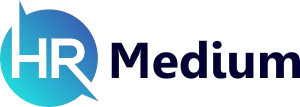In today’s fast-paced business environment, HR departments are no longer just about paperwork and administrative tasks. They play a critical role in driving organizational success by managing talent, fostering employee engagement, and ensuring compliance with regulations.
To meet these challenges effectively, businesses are turning to HR management systems, leveraging technology to streamline processes and maximize productivity.
Streamlining Administrative Tasks
Traditional HR processes often involve a significant amount of paperwork, from employee onboarding to performance evaluations and payroll management. HR management systems automate these tasks, reducing manual effort and the risk of errors.
By digitizing documents and centralizing data, businesses can save time and resources, allowing HR teams to focus on strategic initiatives rather than administrative burdens.
Enhancing Employee Engagement
Employee engagement is key to productivity and retention. HR management systems offer tools to track and analyze employee satisfaction, facilitate communication, and promote a positive work culture.
From pulse surveys to recognition programs, these systems enable HR teams to gather feedback, identify areas for improvement, and implement initiatives that boost engagement and morale.
Empowering Data-Driven Decisions
Data is an asset for HR departments, providing insights into workforce trends, performance metrics, and hiring needs. HR management systems capture and analyze data from various sources, allowing businesses to make informed decisions and adapt their strategies accordingly.
Whether it’s identifying skill gaps, predicting turnover, or optimizing recruitment efforts, data-driven insights enable HR teams to align their practices with business objectives.
Ensuring Compliance and Security
Compliance with regulations such as labor laws, GDPR, and industry standards is essential for businesses to avoid legal risks and reputational damage. HR management systems offer built-in compliance features, including automated recordkeeping, audit trails, and role-based access controls.
With robust security measures in place, businesses can safeguard sensitive employee information and ensure data privacy and integrity.
Conclusion
HR management systems are more than just tools for paperwork—they’re catalysts for organizational success.
By automating administrative tasks, fostering employee engagement, empowering data-driven decisions, and ensuring compliance and security, these systems enable businesses to optimize their HR practices and drive productivity to new heights. Embrace the future of HR with technology that goes beyond paperwork.


